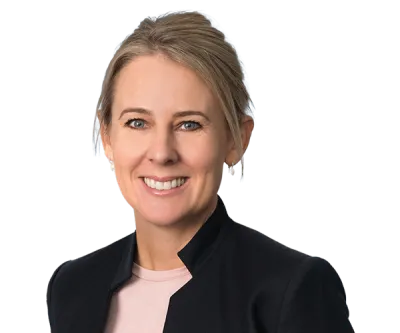
Cayman Islands trustees: Caught in the crossfire
开曼群岛受托人:卷入争端
The role of trustee of a trust is not one to be accepted on a whim: in a modern and highly regulated world, which now includes families who may have generated their wealth in novel ways and individuals with a greater propensity for litigation, the position can bring with it exposure to great risk and liability.
信托受托人并非一时兴起便可以承担的角色:在监管严格的现代世界,现在还包括可能以新方式创造财富的家族,以及更有诉讼倾向的个人,因此这一职位可能会承担巨大的风险和责任。
For trustees of Cayman Islands (Cayman) trusts, administering the trust can become even more complex if they face conflicting and hostile requests or demands from settlors or beneficiaries of the trust who are located in different jurisdictions and have competing interests, even if there is no allegation of breach by the trustee itself. Stuck between the proverbial rock and hard place, it can be very difficult for the trustee to determine which way to turn, particularly if the risk of cross-border disputation is high. However, with careful management of these situations and knowledge of external options for resolution including before the Cayman courts, trustees will be able to find a clear path forward.
Requests for information
One of the first indications that a trust dispute may be brewing, or that the trustee’s past conduct may be under review, is the trustee's receipt of a request for information issued by a beneficiary or other interested parties (such as a protector of the trust). If these parties are connected with a traditional discretionary family trust, then they will likely have varying rights to basic trust information such as a copy of the trust deed and trust accounts. However, parties seeking information about a Cayman STAR trust will have far fewer rights: information about, and rights to enforce, STAR trusts sit solely with the person appointed to the role of enforcer, meaning that beneficiaries are not entitled to receive any information at all. On receipt of requests such as this, the trustees should in the first instance undertake a careful review of the trust deed and ascertain the rights of the person making the request. Consideration should then be given to the wider family context, the way in which the information may be used by the requesting party, and how other interested parties might react to a disclosure of trust information before any response is issued or information passed on.
Death of a matriarch or patriarch
One of the more common backgrounds to requests for trust information, and a likely harbinger of impending litigation, is the passing of a settlor who leaves behind a valuable estate (and, more often than not, family members from multiple marriages). The situation becomes particularly dire where the late settlor has not left a will, or if the will that is available is contested. In these circumstances the executors of the estate may find themselves in the middle of a very hostile battle for the estate assets – one threaded with high emotions and unhealed family wounds. To complicate matters further, the late settlor may have established trusts to hold very significant assets outside of his or her personal estate with entirely different beneficiaries. Unhappy family members who learn of these trusts may seek to challenge the validity of the trusts in an effort to draw the trust assets back into the estate (and out to them as beneficiaries of the estate). Executors and trustees of estates should prioritize the settlor's written wishes if available, but the safest course in these circumstances will be to consult with a legal advisor as early as possible so that they can have clear guidance on the complicated rules surrounding probate and succession law and avoid unnecessarily inflaming family disputes.
Marital breakdowns
Matters can become particularly complex for trustees when they are drawn into marriage breakdowns, a state of affairs that has sadly become increasingly common as couples deal with the fallout of the global pandemic. Trustees may face requests for information about whether trusts contain marital assets, queries about how the trustee intends to administer the trust in the best interests of the family in light of a separation, and demands to partition the assets in light of a pending divorce. All of these interactions with settlors and beneficiaries need to be carefully managed to ensure independence, neutrality, and adherence to relevant laws. Of course, when divorces become particularly hostile, the situation can deteriorate very quickly and the trustee can be drawn into all manner of contentious, and cross-border, applications as the battle begins over (and accusations are made about) ownership of trust assets. In these situations, a trustee must take care to avoid taking steps (such as submitting to the jurisdiction of a foreign court, or making premature disclosures of information) that could inadvertently breach confidentiality obligations and expose the trust and its assets to challenges. Again, obtaining legal advice in early course is always a prudent step.
Paralysis
Where trustees are unable to respond to or resolve requests and competing claims made by the settlor or beneficiaries to their satisfaction, the trustee may well find itself in a situation where any move it makes exposes the trustee to potential liability and the threat of legal action. Decision-making in such circumstances is not only very difficult and highly stressful but in rare circumstances become virtually impossible in that the trustee finds its interests in limiting its own liability conflicting with its duties to the trust . In this scenario, a trustee will likely find itself effectively deadlocked. For trustees of Cayman trusts who are unable to find any sensible alternatives to the competing claims, the best and possibly only option in this scenario will be to make an application to surrender its discretion to the Grand Court of the Cayman Islands (the Court). Assuming it is satisfied that there is good reason to do so, the Court will step into the shoes of the trustee and determine how to exercise the trustee's discretion in order to find an appropriate path forward for all parties.[1] This may include directions as to next steps, and the sanction of conduct by the trustee having regard to all the material circumstances.
The importance of liquidity
Clever, and complex, structuring not only offers a robust asset protection plan for individuals and families but it also ensures that the challenges of the kind detailed above are mitigated. However, that same complexity can also lead to headaches when disputes arise if liquid trust funds have been soundly ringfenced in underlying entities and cannot be easily accessed in order to fund the costs of obtaining, for example, legal or tax advice in response to challenges to the trust. Even trustees holding significant liquid trust funds may have access to those funds severely restricted by terms of the trust deed that might prevent use of those funds without the consent of a protector or enforcer (who may be the party seeking to take issue in respect of the trustee’s conduct). Being alive to these issues at the time the structure is devised, or the trust deed is drafted, and including mechanisms to ensure that the trustee has access to liquidity as needed, can go a long way to prevent compounding expenses as the trustee seeks to relieve restrictions on access to trust funds. It may also prevent a situation where the trustee must pay for advice needed urgently from its own pockets.
A way forward
Despite the minefield of potential issues outlined above, with careful and considered planning at the outset, a willingness to take prompt legal advice in complicated or contentious scenarios that arise, and the option of seeking directions from or the sanction of the Court if appropriate, trustees of Cayman trusts (and executors of Cayman estates) can more confidently manage disputes and calm tensions for the benefit of all involved.
-----------------
[1] As was the case in the matter of HSBC International Trustee Limited v Tan Poh Lee and Ors – FSD 175 of 2019 (IKJ).
An original version of this article was first published by STEP Journal, February 2022.
© Carey Olsen 2022.
对于开曼群岛(以下简称“开曼”)的信托受托人而言,如果来自不同司法管辖区的委托人或受益人对其提出冲突和敌对的请求或要求,并且其中存在利益冲突,那么即使受托人本身未被指控违规,管理信托仍可能变得更加复杂。处于进退两难的境地,受托人很难决定转向哪条路,特别是在跨境纠纷风险很高的情况下。然而,通过谨慎应对上述情况,了解包括诉诸开曼法院在内的外部解决方案,受托人有望找到一条明确的前进道路。
信息索取请求
信托纠纷可能正处于酝酿阶段或受托人过往行为可能正在受到审查的最早迹象之一,即受托人收到受益人或其他利益相关方(如信托保护人)发出的信息索取请求。如果此类当事方与传统的全权受托家族信托存在联系,则可能享有获得基本信托信息的不同权利,例如有权索取信托契约和信托账目的副本。然而,寻求开曼 STAR 信托信息的各方所享有的权利要少得多:有关 STAR 信托的信息和强制执行权利仅属于受指定的执行人,这意味着受益人根本无权获得任何信息。收到此类请求后,受托人应首先仔细审阅信托契约,并查明请求提出方所拥有的权利内容。然后,应考虑更广泛的家族背景、请求方使用信息的方式,以及在发出任何答复或传递信息之前,其他利益相关方可能对披露信托信息作出何种反应。
族长过世
索取信托信息的最常见背景之一,同时也是即将发生诉讼的前兆,即留下贵重遗产的委托人去世的情形(而且通常还留下了多段婚姻的家族成员)。如果已故委托人未留下遗嘱,或者现有的遗嘱存在争议,那么该情况将变得尤为可怕。在这种情况下,遗产执行人可能会发现陷入一场针锋相对的“遗产争夺战”,其中充斥着偏激情绪和未愈合的家族创伤。使问题进一步复杂化的情况是,已故委托人可能已经设立信托,由非遗产继承人的信托受益人来持有重大资产。由于信托财产不属于个人遗产范畴,得知此类信托的不满家族成员可能会试图质疑信托的有效性,努力将信托资产拉回遗产范畴(并将自身作为遗产受益人)。遗产的执行人和受托人应优先考虑委托人的书面意愿,但在这种情况下,最安全的做法是尽早咨询法律顾问,以便后者能够就有关遗嘱认证和继承法的复杂规则提供明确的指导,避免不必要地激发家族纠纷。
婚姻破裂
当受托人陷入各类婚姻破裂的局面时,事态可能会变得特别复杂,令人遗憾的是,随着夫妻双方共同面临全球疫情的打击,这种情况现已日益常见。受托人可能会面临以下情况:对方会请求提供信托是否包含夫妻共同财产的相关信息、询问受托人打算如何在分居情况下为家庭的最佳利益而管理信托,以及要求在等待离婚的情况下分割资产。所有上述与委托人和受益人的互动均需谨慎应对,以确保独立性、中立性以及对相关法律的遵从性。当然,当离婚变得针锋相对时,这一局面可能会很快恶化,随着信托资产所有权之争迎来“开战”(以及对信托资产所有权的指控),受托人有可能卷入各种有争议的跨境申请之中。在上述情况下,受托人必须注意避免采取可能无意中违反保密义务并使信托及其资产面临质疑的行动(例如服从外国法院的管辖权或过早披露信息)。再者,及早征询法律意见始终不失为审慎的做法。
陷入僵局
如果无法满意地回应或解决委托人或受益人提出的请求和双方相竞的诉讼主张,那么受托人很可能会发现所采取的任何行动都会使自身面临潜在责任和法律诉讼的威胁。在这种情况下作出决策不仅极其困难且饱受压力,而且在极少数情况下几乎不可能实现,因为受托人会发现其自我保护的权利与管理信托的义务相冲突。面对这一局面,受托人可能会发现自己实际上陷入了僵局。如果开曼信托机构的受托人无法找到任何合理的替代方案来处理相竞的诉讼主张,在这种情况下,唯一的最优选择可能是向开曼群岛大法院(以下简称“法院”)申请移交其酌处权。如果认为此举存在充分理由,法院将站在受托人立场来确定受托人酌处权的行使方式,以便为各方找到适当的前进道路。[1] 这可能包括对后续行动的指示,以及受托人在考虑到所有实质性情况后对执行情况的批准。
资产流动性的重要性
巧妙的复杂法律架构不仅为个人和家族提供了强有力的资产保护计划,还确保了上述挑战可以得到缓解。然而,当发生纠纷时,如果流动信托资金在基本实体中受到严密限制,无法方便地取用以支付为应对信托受到的挑战而征询法律或税务意见等方面的费用,那么同样的复杂性也可能导致令人头痛的问题。即使是持有大量流动信托资金的受托人仍可能受到信托契约条款的严格限制,在未经保护人或执行人(可能属于对受托人行为提出异议的一方)同意的情况下,受托人仍无法使用此类资金。在设计结构或起草信托契约时注意到上述问题,纳入确保受托人能够根据需要获得流动资金的机制,此举大大有助于防止因受托人寻求放宽对获取信托资金的限制而造成的复利费用。此外,这一举措还可以防止受托人必须自掏腰包紧急寻求咨询的情况。
前进道路
尽管上文概述了潜在问题存在的雷区,但如果一开始就进行深思熟虑的谨慎规划,在出现复杂或有争议的情况时愿意立即征询法律意见,并酌情选择寻求法院的指示或批准,那么开曼信托机构的受托人(及开曼机构的遗产执行人)便可以更有信心地应对纠纷,平息紧张局势,造福于所有相关各方。
[1] 正如 HSBC 国际信托有限公司诉 Tan Poh Lee 一案(案件编号:2019 (IKJ) FSD 175)一样。






